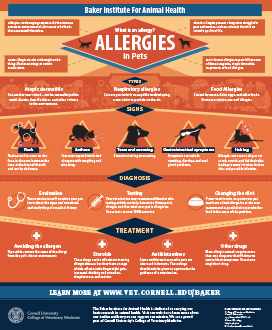Dog Daycare Fire Safety
Dog Daycare Fire Safety
Blog Article
Can Dog Childcare Reason Ailment?
Pet childcare is a great way to mingle your pet dog in a secure and regulated atmosphere. Much like youngsters, pet dogs at day care can catch a range of germs.
Some of these consist of: Pooch distemper - an airborne virus that strikes the respiratory and stomach systems with symptoms including throwing up and bloody diarrhea. This is extremely transmittable and can be fatal. Prevention consists of a reliable vaccination, and respectable centers generally need this inoculation.
Pooch Distemper
Just like youngsters that go to institution, pets at a dog park or day care can obtain many different contagious conditions. These can include kennel cough, mange, ringworm, canine influenza, distemper, rabies, and parvovirus (parvo).
While there are lots of illness that create coughing, fever, loss of appetite or seizures, the combination of these signs and symptoms with the development to a nervous system illness is one-of-a-kind to distemper. This can result in death, particularly in pups and unvaccinated grown-up dogs.
Distemper is spread out mostly by straight call between canines, however can likewise be sent via respiratory system secretions or by contact with common food bowls, products, equipment and surfaces. The infection is lost in physical secretions, and infected hands, feet, noses and mouths. Pups and strays are most at risk to infection.
Canine Influenza
An extremely transmittable viral condition that influences dogs (and in rare situations, pet cats). It is spread out by respiratory secretions and contaminated objects, such as leashes, playthings, food bowls and collars. It can additionally be moved from human hands to the mouth and nose of contaminated pets.
Signs and symptoms consist of coughing, sneezing, runny nose and eyes, high temperature and anorexia nervosa. Severe cases can result in pneumonia.
Since this is a fairly brand-new illness, a lot of pet dogs have no natural immunity against it and will become infected when first exposed. Vaccines are readily available. Reputable daycares and boarding facilities will need all pets to be up to day on their flu, bordetella and parainfluenza vaccinations. If your pet is experiencing signs and symptoms of kennel coughing, it's ideal to maintain them home from childcare till they are clear of the illness.
Canine Coughing
Canine transmittable tracheobronchitis, even more frequently referred to as kennel coughing, is a multifactorial illness triggered by a selection of infections and microorganisms. Typically, affected canines establish a completely dry hacking cough that is worsened by exercise or excitement and can last for weeks. More severe situations can result in bronchopneumonia and need aggressive treatment consisting of a hospital stay for IV-provided antibiotics, oxygen therapy and fluids.
The most common cause of kennel cough is the bordetella bacterium, but infections can also be caused by herpesvirus, parvovirus and adenovirus. It is transmitted via beads launched when contaminated pets sneeze or cough, dog-to-dog call and sharing things such as food and water bowls or playthings. Vaccination for this disease is available and is recommended for dogs that hang out in boarding facilities, grooming stores, pet day care and training classes as well click for more as those joining canine sporting activities or team canine walks.
Pooch Parvovirus
Canine parvovirus (CPV) is one of the most hazardous illness that impacts unvaccinated dogs. The infection strikes the intestinal tract, resulting in throwing up and extreme looseness of the bowels. It likewise infects the bone marrow, leading to a decrease in safety white blood cells. The weakened body immune system enables the infection to spread swiftly. It is especially fatal for puppies and pets of young age, yet it can likewise attack grown-up pet dogs and other canids like coyotes and foxes.
This highly contagious ailment is spread out with direct contact with a contaminated canine, the infected atmosphere such as kennels and food bowls, and even the hands and apparel of individuals dealing with the dog. Vaccination for this ailment works, and respectable daycare and boarding centers will require it. The kennel coughing injection is often advised together with the parvovirus vaccine.
Pooch Bloodsuckers
Parasites might be internal (worms) or external (fleas, ticks). Digestive parasites can cause a selection of issues, however they are particularly significant in young puppies. As an example, hookworms connect to the digestive tract wall surface and suck blood, causing anemia in puppies. Young puppies may be infected with these parasites by eating feces-contaminated soil or with the mother's milk throughout nursing. Puppies might also become infected with whipworms, which are single-celled bloodsuckers that connect to the intestinal tract and decrease nutrient absorption, creating chronic watery looseness of the bowels.
Canines can additionally be infected with tapeworms, heartworms, roundworms and giardia. If you notice worms in your pet dog's feces, a visit to your veterinarian is recommended for medical diagnosis and therapy. Parasite infections are avoidable with regular monthly spot-on therapies and regular cleansing of food, water and feces bowls.